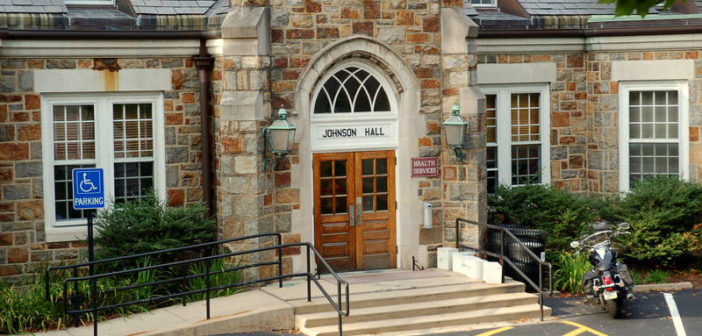Mental health-related incidents have steadily been on the rise not only on Lehigh’s campus, but also on college campuses nationwide.
And with Lehigh’s Path to Prominence initiative increasing the size of the student body, the university’s student support services could be strained.
Ian Birky, the director of counseling and psychological services at Lehigh, said counseling services has not yet received the staffing and personnel needed to adequately respond to student’s needs on campus.
Ricardo Hall, the vice provost of student affairs, is making that request to the university due to the influx of students being accepted into Lehigh.
“It’s not just going to be counseling services, it’ll be other parts of the university that will have to increase just to be able to provide adequate and good support to the additional students we’re bringing in,” Birky said.
An increase in students comes an increase in demographic diversity, which results in some students needing more mental support than others.
“We know that students who are first-gen and/or are coming from farther distances from the university have greater needs,” Birky said.
The average wait time for a student seeking psychological help on campus is anywhere from one to two weeks, he said. The counseling services center has a specific number of people on staff, so the center can only see a limited number of students within a semester’s time frame.
Due to this limitation, Birky urges students seeking psychological assistance to not limit themselves to only counseling services. Birky said if students need immediate assistance they should seek help through other support offices.
Nadine Clopton, ’19, has experienced mental health trouble while at Lehigh.
“If you are currently struggling with mental health issues, I promise you aren’t alone,” Clopton said. “One of the most pervasive issues on campus is that we don’t talk about our mental health enough. It’s OK to not be OK.”
Birky said in a Brown and White article from October 2018 that between January and April 2017, his office received 64 reports of students having suicidal considerations. But in that same four month span in 2018, the number rose to 73. Though the size of Birky’s staff has remained constant, the Counseling Center saw 537 students between January and April 2017, but saw 630 in that same time span in 2018.
Margaret Murphy, the executive director of the National Alliance on Mental Illness of the Lehigh Valley, said while stressors tend to heighten the illness, they aren’t necessarily the root cause.
“Fifty percent of all lifetime cases of mental illness start by age 14; 75 percent of them have started by age 24… so the college age group is vital because this is usually where it progresses,” Murphy said.
This semester the amount of mental health, alcohol and drug addiction incidents on campus has largely remained constant so far compared to previous semesters.
The amount of students seeking emotional support for the first time on campus has increased, Birky said. Murphy stressed that the primary reason why people of any age refuse to seek initial treatment is because of the stigma that surrounds mental illness.
Like Murphy, Clopton said she believes that cultivating a stigma-free environment on and off campus will allow students to feel heard and supported by the Lehigh community.
“Never invalidate how someone is feeling when they open up to you, simply express your love and support,” Clopton said. “If someone asks you for suggestions on how to improve their mental health, it is more than OK to offer advice.”






Comment policy
Comments posted to The Brown and White website are reviewed by a moderator before being approved. Incendiary speech or harassing language, including comments targeted at individuals, may be deemed unacceptable and not published. Spam and other soliciting will also be declined.
The Brown and White also reserves the right to not publish entirely anonymous comments.
2 Comments
—–because of the stigma that surrounds mental illness.
I’d be very wary of that “because of”…
You intended “because of those who direct a stigma at mental illnesses”. Joining them in directing it helps no one.
Harold A Maio
Why no mention here of the economic struggles and crises of first gen and low socio-economic students experience at Lehigh: food scarcity, housing insecurity and long hours of work often needed to pay for the privilege of study? And what if these students experience financial crisis? Does Lehigh provide any social services? Or will we continue to kick to the curb students in economic crisis? Lehigh should do better by these students in terms of emergency food, shelter and social services.